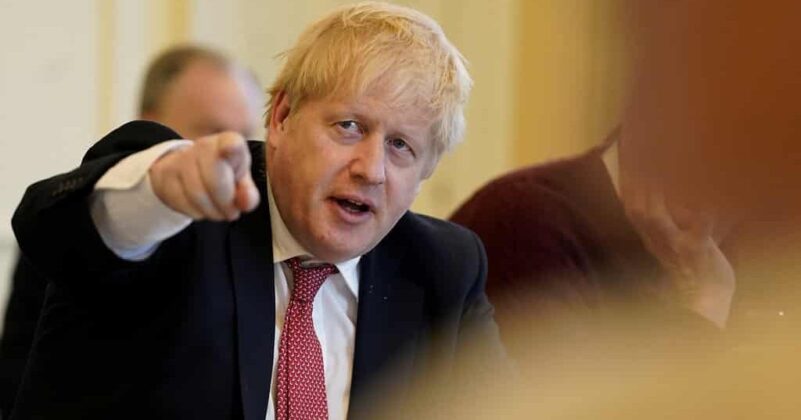

By Millie Collins
IN THE same week it was revealed that Tory MPs and No. 10 staff were partying until 4:30am and verbally abusing cleaners and security guards, an unnamed Tory MP was arrested in connection to allegations of rape, indecent and sexual assault, abuse of a position of trust and misconduct in public office between 2002 and 2009. The Tory party is under growing pressure to remove the whip from this MP but has so far resisted.
Another unnamed MP has been accused of plying at least four victims with date rape drugs. It’s claimed that one of the victims, a Tory MP, awoke to find his nipples being licked. Another victim says he had rebuffed his advances and suspected his drink had been spiked.
A spokesperson for Boris Johnson said that a ‘small minority’ of MPs had not lived up to expectations of ‘respect and decency’. But the number is not so small. At present, 56 MPs, almost 10% of the Commons, are under investigation, including three members of the cabinet. Complaints range from sexual harassment and inappropriate comments to allegations of assault and even an attempt to bribe a member of staff for sexual favours.
By-elections
In March 2021, Labour MP Mike Hill was finally forced to resign after it was found that he had breached Parliament’s sexual misconduct policy. Originally suspended from the party in 2019 Hill was swiftly reinstated to run in the general election. But in May last year an employment tribunal found him guilty of sexual assault, harassment and victimisation and ordered him to pay compensation of over £430,000.
His resignation triggered a by-election in his Hartlepool seat. Two further by-elections have been set for 23 June after Tory MPs were found guilty of sexual misconduct and assault: Imran Ahmad Khan, found guilty of sexually assaulting a 15-year-old boy; and Neil Parish, caught twice watching porn in the Commons.
There are a dozen more incidents where female MPs have been subjected to ‘wandering hands’, been licked on the face and or sent a ‘dick pic’. Anne-Marie Trevelyan, the International Trade Secretary, revealed that she was once ‘pinned up’ against a wall by a male Conservative MP.
Institutional sexism
These examples represent only those that have been reported; many more may have gone unreported for fear of repercussion or simply a belief that nothing will be done. Many of those accused remain nameless, not even facing a public jury, only a parliamentary advisory body.
While the Government faces pressure from its own MPs, the opposition and the press to investigate the institutionalised misogyny and harassment running rampant in Westminster, business secretary Kwasi Kwarteng has claimed that there aren’t institutional problems; it’s simply a case of ‘some bad apples’. He went on to claim that the problems were mainly due to staff being overworked in ‘a really intense environment’. This manages to both jusfify and minimise serious sexual harassment in the same sentence!
On the other hand Caroline Nokes, a senior Tory MP who chairs the Women and Equalities committee, has accused her own party of institutionalised sexism. She recalls on one of her first days as a minister being told that she’d ‘only been given that job because of certain body parts that [she] had’. She further went on to describe ‘the deliberate belittling and demeaning of women MPs. A culture which lacks respect.’
At the last election 18 female MPs stood down, almost all stating that the toxic work environment and abuse they received had become too commonplace to continue.
This is not the first time a parliament has been plagued by sleaze and scandal. Indeed Tory governments have been particular notorious. Rather than simply use these incidents to score points against the Tories, Labour must fight to change its own culture as well as that of that of parliament.
Both Labour and the unions have endured their own scandals of sexual abuse at the top, most recently in the GMB, which most ordinary members would call out if they witnessed it in their workplaces. But the closer Labour MPs and union leaders get drawn into the ‘corridors of power’ the more they get accustomed to the sense of entitlement that leads them to accept abuses of power.
Change
That’s why change must come from below: men, but to the forefront women in the labour movement.
We need a working class women’s movement that fights alongside and within the trade union movement against sexual harassment and unequal wages and conditions. Labour must allow and encourage women members and staff to caucus – to discuss the organisation’s culture and raise their concerns and proposals for collective action.
Parliament is responsible for making laws about rape, assault and harassment, and wider issues of women’s rights to abortion, divorce and equal pay and treatment in the workplace. We need not only a change of government but a change of system, with greater transparency and the right to recall MPs and hold them to account.